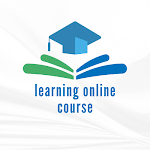Computer Science: Programming with a Purpose | Free Software Development course
Free Coursera Software Development course
Description
There are 10 modules in this course
The basis for education in the last millennium was “reading, writing, and arithmetic;” now it is reading, writing, and computing. Learning to program is an essential part of the education of every student, not just in the sciences and engineering, but in the arts, social sciences, and humanities, as well. Beyond direct applications, it is the first step in understanding the nature of computer science’s undeniable impact on the modern world. This course covers the first half of our book Computer Science: An Interdisciplinary Approach (the second half is covered in our Coursera course Computer Science: Algorithms, Theory, and Machines). Our intent is to teach programming to those who need or want to learn it, in a scientific context.
We begin by introducing basic programming elements such as variables, conditionals, loops, arrays, and I/O. Next, we turn to functions, introducing key concepts such as recursion, modular programming, and code reuse. Then, we present a modern introduction to object-oriented programming. We use the Java programming language and teach basic skills for computational problem solving that are applicable in many modern computing environments. Proficiency in Java is a goal, but we focus on fundamental concepts in programming, not Java per se. All the features of this course are available for free. It does not offer a certificate upon completion.




.png)
